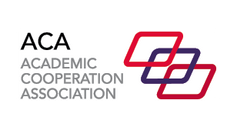Internationalisation at present is primarily focused on the Higher Education (HE) staff and students as the target groups and on mobility as the main activity, however, internationalisation at home remains marginal.
Higher Education Institutions are increasingly active, but in social engagement these activities are usually viewed as competing for priority and relevance with excellence in research and internationalisation.
With many social challenges at hand, internationalisation will be in the need of string instruments to support change which at the same time would be considering social engagement and internationalisation at home. In addition, internationalisation and social engagement usually do not cooperate but compete for resources instead. Internationalisation in Higher Education for Society (IHES) aims to change this and activate the internationalisation potential for social engagement.

This project aims to build activities concerning the real needs of society. IHES wants to test different approaches in two different regions, Catalonia and the Olomouc region, using a quasi-experimental design. It aims to generate knowledge that can be easily transferred from the regions and partners involved in the project. IHES focuses on ensuring that the entire project is based on a multi-level inclusive approach while targeting HE institutions and their networks, social actors and their networks, and regional governments.
Project Objectives
IHES has several key objectives, which will implement different intellectual outputs (IOs). The project aims:
To build activities concerning the real needs of society. To define this, the Intellectual Output 1,2 activities will be implemented while analysing the needs of society and the already existing projects.
To test different approaches in a “regional lab“ setting, thereby also using a quasi-experimental design by working in two different regions of Catalonia and the Olomouc region. Different approaches will be tested, compared and then set into context with findings related to the first objective. This will be also included in the Intellectual Output 3.
To generate knowledge that can be easily transferred from the regions and partners involved in the project. As many Higher Education institutions as possible shall be able to learn from the experience and possibly prepare their own future IHES projects. The Intellectual Outputs 4-6 are related to and based on this particular objective as well.
To ensure that the entire project is based on a multi-level inclusive approach that takes into account the main target groups of the project. All intellectual outputs and particularly the constellation of the consortium serve this goal, too.
The five intellectual outputs (IOs) and multiplier events (ME) for IHES over the course of three years are:
Intellectual Output 2: Report on current good practices in IHES across Europe
Leading organisation – Academic Cooperation Association (ACA).
Output type – studies/analysis and best practice guidelines/reports.
IO2 will identify existing IHES practices through a mapping survey among HEIs, further desk research and two focus groups with representatives from civil society and regional authorities.
Intellectual Output 3: Report on the concept, implementation and results of the regional IHES laboratories in Catalonia and the Olomouc region.
Leading organisation – Universitat Rovira i Virgili (URV)
Output type – studies/analysis and case study
The core activity of IO3 is the creation and comparison of two regional IHES-Labs, one in Catalonia and one in the Olomouc region.
Intellectual Output 4: Guidelines for implementing IHES
Leading organisation – Global Impact Institute s.r.o. (GII)
Output type – methodologies/guidelines and methodological framework for implementation
The guidelines for implementing IHES form the basis for allowing the sustainability and distribution of the project results beyond the consortium and the project timeline.
Intellectual Output 5: Developing a regional model for implementing internationalisation in higher education for society
Leading organization – Grupo Santander (S Group)
Output type – methodologies/guidelines and methodological framework for implementation.
The main objective of IO5 is the elaboration of a general model focused on the regional implementation of IHES.
Intellectual Output 6: Establishing an IHES network of organisations
Leading organizations – Palacký University Olomouc (UP)
Output type – network / interactive resource
IO6 will set up IHES resource centre in the form of an online platform. It will feature information on the IHES Network of Organization that will be open to new members from Europe and across the globe
Read more about outputs and results: https://ihes.upol.cz/outputs-and-results
Project Partners
This project includes eight partner institutions with Palacký University Olomouc as the main coordinator. Partner institutions include Universitat Rovira i Virgili, Departament D´Empresa i Coneixement, Generalitat de Catalunya and Grupo Santander in Spain, Academic Cooperation Association and Lifelong Learning Platform in Belgium, and Global Impact Institute s.r.o. and the Olomouc Region in the Czech Republic.
Associate Partners
This project also includes four Associate partners who will participate in Multiplier events, dissemination to and feedback from their members on developed products.
Associate partners include Catalan Association of Public Universities (ACUP), Alliance of Centres for International Relations, The Czech Republic (ACIR CZ) and Erasmus Student Network on both national (ESN CZ) and local level (ESN UP Olomouc).

























